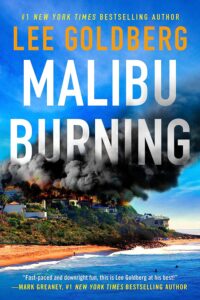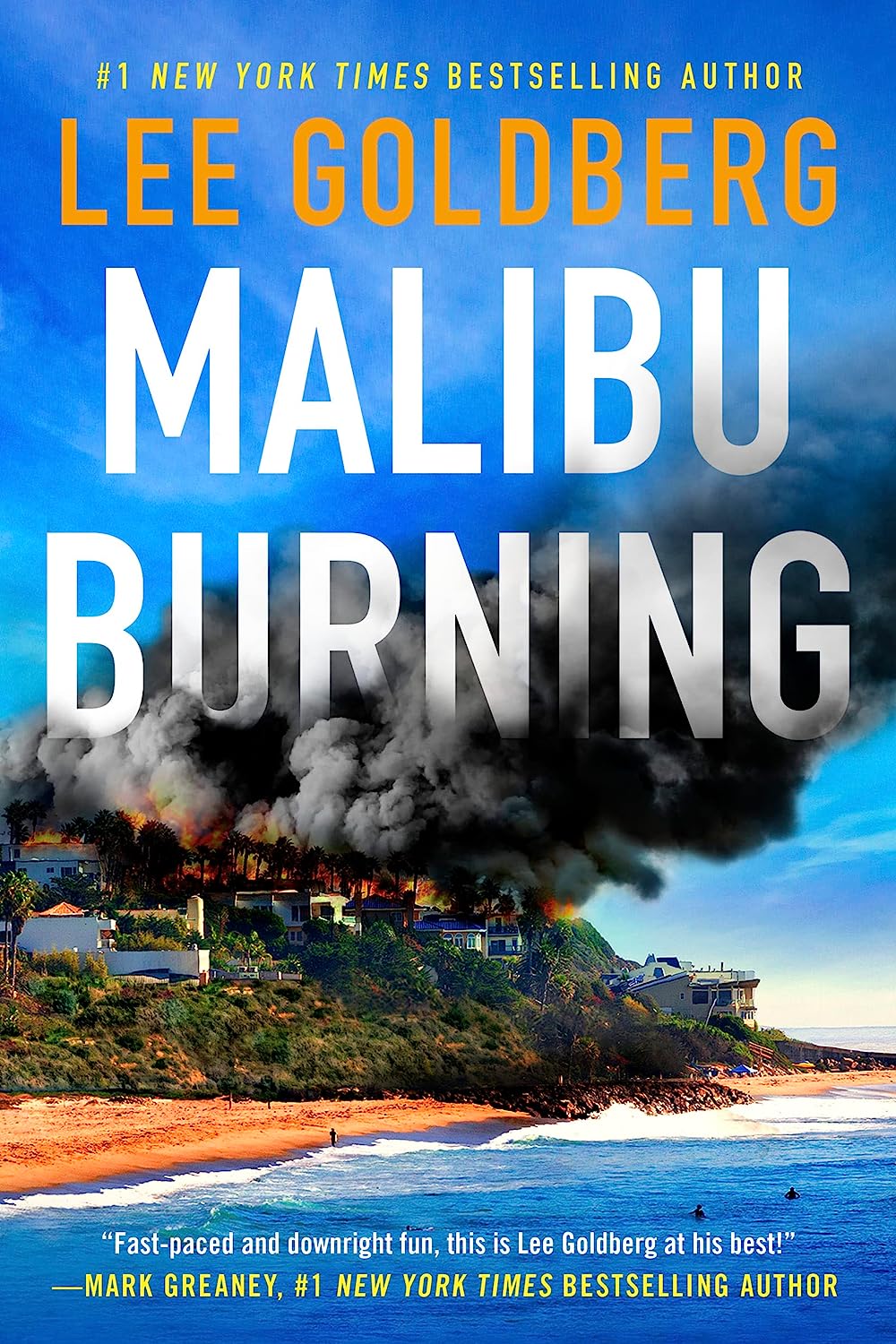Malibu Burning, by the popular and prolific Lee Goldberg, introduces us to Walter Sharpe and Andrew Walker, a pair of arson investigators at the Los Angeles County Sheriff’s department. The book is the first in a series. Sharpe is an old curmudgeon, a patronizing Wilford Brimley type whose nickname, “sharpei,” is a dig at his oversized jowls and irritable demeanor. He’s an ace investigator, though, his gruff manner notwithstanding.
Walker, a cowboy hat wearing former US Marshall who has reluctantly transferred to the LASD to appease his anxious, pregnant wife, is eager to learn the ropes, or hoses, as it were, but he’s got a long way to go before Sharpe will have anything but disdain for him. If the dynamics between these two sound irritating, it’s because they are.
I’ve enjoyed several books by Goldberg, and  it’s easy to see why his fans like him so much. He’s great at storytelling, and his background in television makes his books fun and easy to read. That said, I don’t think Malibu Burning is his best work.
it’s easy to see why his fans like him so much. He’s great at storytelling, and his background in television makes his books fun and easy to read. That said, I don’t think Malibu Burning is his best work.
Part of the problem is the book’s questionable moral point of view. The story opens with Danny Cole, a talented con man, ripping of a drug cartel. While his confederates escape from the cops, Cole gets arrested after stopping to save a drowning man during his getaway. This tees up his lawyer’s courtroom plea to spare him person time because he’s essentially a good man because he steals from bad people.
If you buy into that closing argument, you will like Danny Cole. And, it’s hard to dislike him. He’s a crook to his core, but he also has a sense of justice. He’s also, per Goldberg’s TV background, one of those sneaky, obnoxious know it all characters that everyone seems to love despite themselves—in other words, a character unlike anyone you’d ever meet outside of a television screen.
Cole spends his prison sentence on a convict firefighting team. He opted for this as a way to stay out of the homicidal path of the drug dealer’s he stole from at the outset. He learns to fight fires, but also how to start them… in the process, he watches a friend get killed after a greedy millionaire homeowner pulls strings that puts the convict crew in harm’s way.
After that, Cole is out for revenge. Once out of prison, he hatches a scheme to start a massive fire that will give his gang cover to loot the rich bastard’s house before it burns to the ground. To tell this story, Goldberg uses a non-linear narrative that jumps back and forth from the present to the increasingly recent past.
As Sharpe and Walker get wind (almost literally) of Cole’s plot, they pursue the case despite being told to stay away from the massive, potentially lethal fire that Cole has set. Everyone thinks it’s just electrical wiring gone bad, but Sharpe knows better. Walker, for his part, uses his US Marshall’s skills to “find his man.”
Goldberg is good at setting up a plot where you want the antihero to right wrongs and fight the system, even if he has to break a dozen laws to do so. In this case, Goldberg describes a firefighting bureaucracy that’s gratuitously cruel and destructive to firefighters injured in the line of duty. It’s not clear if this is how things actually work at Cal Fire, but if it is, they deserve every ounce of derision that Goldberg dumps on them.
Another thing that’s fun in this book is the way Goldberg paints Southern California as a world enmeshed in television. So much of the landscape and its inhabitants either work in TV, wish they worked in TV, or believe they are on TV as they go about their hum drum lives. For example, he offers a hilarious, petty Dollar Store manager whose love for Star Trek leads her to call the filthy, depressing store “The Enterprise” and refer to her miserable employee’s as “ensigns.”
If you like Goldberg, this book will probably satisfy you, but it may be best to wait for his next one.
